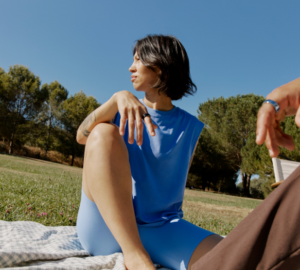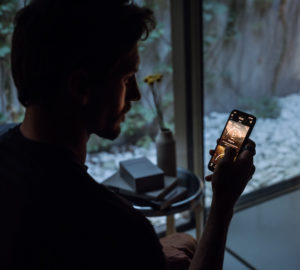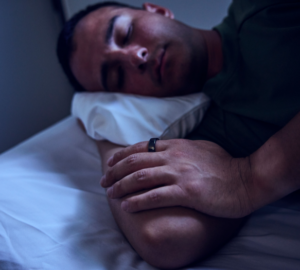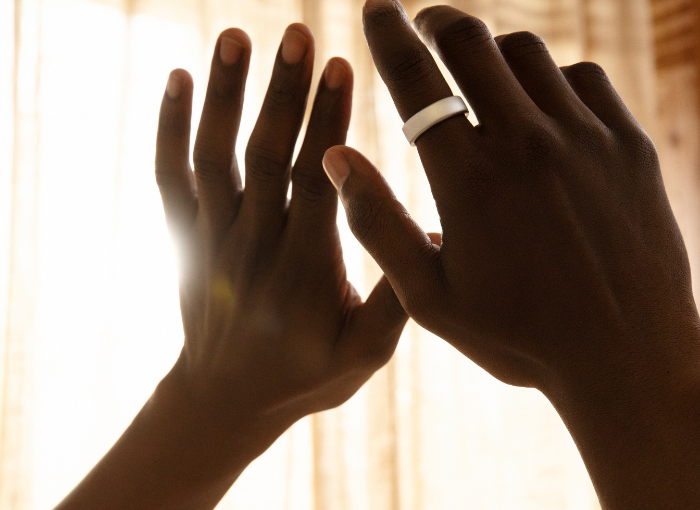If the switch to or from Daylight Saving Time (DST) makes you feel out sync, you’re not alone. This biannual event can have a disruptive impact on your sleep schedule and daily routine.
“Virtually every cell in our body operates in a clock-like fashion, with certain organs and physiological processes being performed or halted at various times in a typical 24-hour day,” explains Rebecca Robbins, PhD, sleep researcher and Oura advisor. “These systems cannot change course on the flip of a coin, which is what happens when we change the clocks on our walls.”
The good news is that with some small adjustments, you can have a smoother transition to a new season.
The Challenge of Daylight Savings
When daylight saving time begins in the spring, we “spring ahead” and lose an hour of sleep. When it ends in the fall, we “fall back” and gain an hour. While this may seem like a small change, it can disrupt your circadian rhythm.
Studies have suggested that more serious consequences may also result: The March time change has been associated a range of negative consequences, from car accidents to heart attacks.
The autumn time change has been associated with an uptick in car collisions with deer, as well as an increase in heart attacks, the week after DST ends, compared to other weeks.
“This demonstrates the profound impact of changing our schedules even one hour on our individual and collective public health,” Robbins notes.
But it’s only an hour, so why is this the case? Let’s take a step back and find out why this can be the case and what you can do to mitigate the negative effects.
READ MORE: What Makes the Oura Ring Different?
Your Circadian Rhythm
Your body moves through its day with a specific, choreographed routine — your circadian rhythm. Circadian refers to your body’s innate 24-hour cycle based on the pattern of the sun.
Most mammals — and yes, that includes us, humans — are awake during the day and asleep at night. Your circadian rhythm is genetically hardwired and influences your energy levels, hunger, and alertness. You may not realize it, but your best days often come when your lifestyle aligns with your body’s natural rhythm.
Your internal clocks are unique. Your body has a specific preference, or “chronotype,” for how your circadian rhythm aligns with the sun’s daily pattern. If your body is naturally more active in the morning, your chronotype is an “early bird.” If your body is more alert in the evenings, you’re a “night owl.” Your type determines when your body executes certain routines.
| Member Tip: You’ll learn your personal chronotype after using Oura consistently for 90 days. This can help you understand your natural sleep inclinations, such as your optimal bedtime window. |
LEARN MORE: What Is Your Chronotype & Why Does It Matter?
Your Sleep Drive
The second system that influences your sleeping pattern is your sleep drive. Its main job is to encourage your body to get some sleep when you need it. The moment you wake up, the “drive” increases and builds throughout the day. The greater your sleep drive, the more your body signals that it’s time to sleep. Ever felt your head start to bob during a boring meeting? That’s your body’s “Time to sleep!” signal.
DST can have a notable impact on sleep drive. The sudden change, which disturbs our circadian rhythm, can alter sleep drive. In the spring, when we lose an hour of sleep, our circadian disruption can result in sleep deprivation. The reduced sleep duration and the misalignment between our internal clock and the external time can lead to an increased sleep drive, meaning we feel a stronger urge to sleep.
In the fall, when we gain an extra hour of sleep, it can temporarily reduce our sleep drive. While it may feel like a bonus, this extra hour can also lead to disruptions in sleep patterns. We also may struggle to feel tired when our usual bedtime rolls around, because the clock is showing an hour later than our internal clock.
So, what can you do to adjust? Well, a lot! And it all starts with trying new routines and following your Oura data.
LEARN MORE: Using Oura to Listen to Your Body
5 Tips to Adjust to Daylight Saving Time Changes
1. Get plenty of natural light.
As mentioned earlier, the initial negative effects of DST have to do with your body’s innate 24-hour cycle based on the sun’s pattern. By getting more natural light early and often (be sure to protect your skin), you assist your circadian rhythm.
Some ideas from Dr. Robbins: “If you love to run, try to do it outside next week. If you have a commute, try to walk to an extra stop on the subway, or take your lunch or coffee break outside. Exposure to natural light in your environment at the new clock time will help your internal clock adjust to the new pattern of light and darkness in our environment.”
2. Adjust your sleep schedule.
In the week prior to the start of Daylight Saving, use small changes in your sleep schedule to mitigate the hour change:
When you “spring forward” (when DST begins): Shift your bedtime and wake time earlier. The clock will be moved forward by one hour at 2am, so you should adjust your bedtime and wake time to be an hour earlier than your current schedule. You can do this by shifting your bedtime by 15 minutes per day over four days to gradually adapt to the new time schedule.
When you “fall back” (when DST ends): Shift your bedtime and wake time later. In this case, you gain an hour, so you can adjust your schedule by gradually moving your bedtime and wake time an hour later in 15-minute increments.
3. Establish a sleep-promoting evening routine.
Throughout your evening, there are a number of steps you can take to promote restful sleep. These can include:
- Ceasing alcohol intake 3-4 hours before bed
- Cutting caffeine 6 hours before bed
- Avoiding heavy meals inside 4 hours before bed
- Slowly reducing exposure to light as the evening progresses
- Eliminating blue light in the last 60 minutes (electronic screens, LED bulbs)
- Clearing your mind with a relaxing activity or following one of the guided meditations or breathing exercises in the Oura App (Explore content).
LEARN MORE: 10 Simple Breathing Exercises for Sleep and Relaxation
4. Focus on daily habits that improve sleep quality.
Getting quality sleep takes a series of sleep-promoting behaviors. Your daily behaviors can help or hurt your sleep quality. Regular physical activity, a healthy nutritional balance, optimal meal timing, evening blue light exposure, and a sleep-promoting bedroom environment are just a few of the things you can modify to promote more restful sleep.
5. Utilize power naps.
Using short naps, up to 25 minutes, can help relieve daytime sleepiness in the period after the time change. The best time for a nap is early in the afternoon, a time when your body naturally has a decline in energy. This timing also prevents a negative effect on your sleep that night.
READ MORE: How Long Should You Nap?
Use Oura to Help You Adjust to a New Season
Oura gives you insights into how you slept, and how your body is responding. Every morning, you get a Sleep and Readiness Score, that can help you decide how to adjust your day in response. For example, after the clocks change, you may notice you’re getting less deep sleep, which may explain why you’re feeling tired, despite still getting the same amount of sleep. This can be caused by going to bed later than your chronotype, which can happen easily if the clocks move an hour later.
When you’re armed with these insights and data, it’s easier to make the changes necessary to keep you feeling, and sleeping, your best.
RELATED: Oura Ring Data Reveals How Summer Affects Our Sleep
About the Oura Expert
Dr. Rebecca Robbins, PhD
Dr. Rebecca Robbins is a Sleep Scientist at the Brigham and Women’s Hospital and Assistant Professor of Medicine at Harvard Medical School where her research focuses on sleep and its effects on health and the design of novel behavioral interventions to nudge and navigate participants and communities toward better sleep, sleep disorders care, and overall health.




